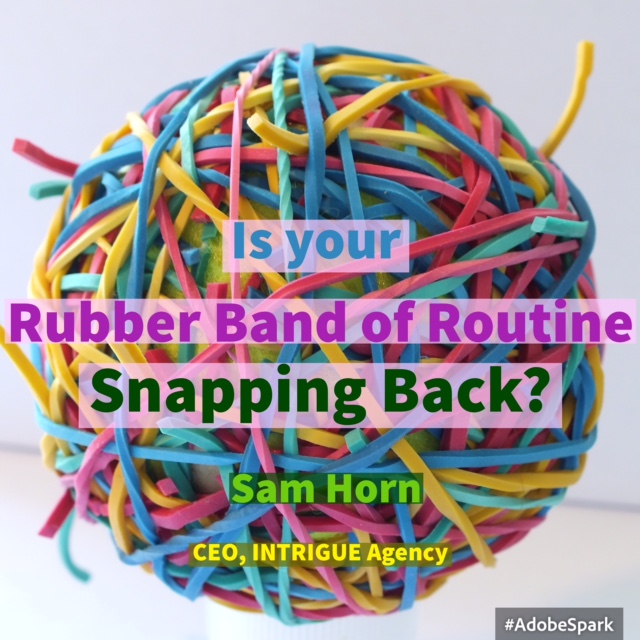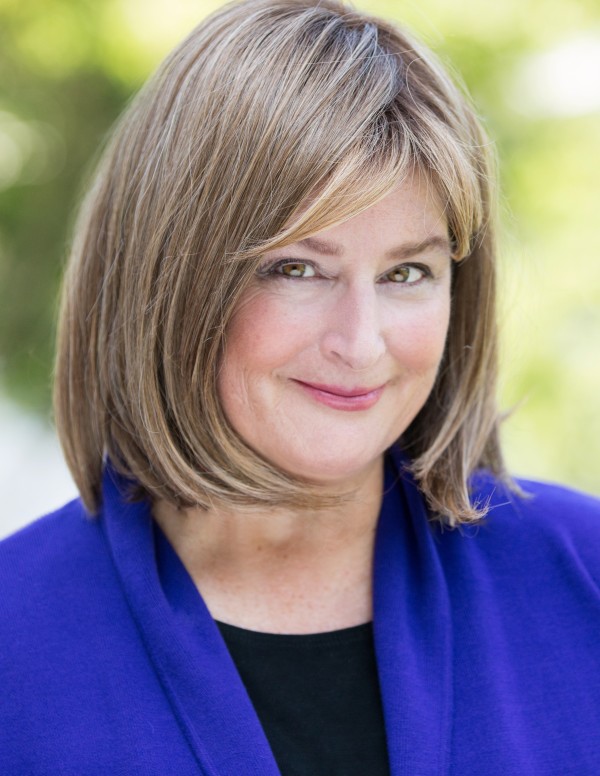Full confession. I’ve shared stories from my Year by the Water about sailing the Chesapeake Bay, swimming with Zach the Dolphin, and watching whales breach off Maui.
But the truth? There wasn’t a lot of water in the first three months of my Year by the Water.
What happened? The rubber band of routine snapped back is what happened.
In those first three months, I spent only one of every four days on, in or around the water. The other three days were spent in airports, flying, driving to and speaking at conferences, staying in hotels and working with consulting clients virtually or at their office.
Why did I revert to my decades-old habit of filling my calendar with paying commitments?
Well, the day before I left, I had a long conversation with Cheri Grimm. Not only has she been my Business Manager for the past twenty years, as my sister, she knows me better than anyone. As we wrapped up our call, she asked, “What do you you want most for your trip?”
I blurted out, “Well, I know what I don’t want. That’s for this to turn into business as usual … just on the road.”
Argghh. I’m supposed to know better. I focused on what I didn’t want.
Now, in my defense, there were good reasons that burst out my mouth. The weeks leading up to my departure had been intense with dozens of logistics to button up.
Still. When we focus on what we don’t want; that’s what we get. If we tell our kids, “Don’t run around the pool,” what are they going to do? Run around the pool.
If we’re playing a sport and think, “Don’t double-fault” “Don’t strike out” or “Don’t hit it in the water,” what’s going to happen?
If we’re dealing with a difficult person and tell ourselves, “Don’t let him get under your skin,” or “Don’t let her make you mad” we’re going to do both.
I’ve been teaching this for years. It’s in all my books. So, why did I do it?
I call Judy Gray and ask for advice. Judy used to run the Fairfax County Chamber of Commerce and the Florida Society of Association Executives and is one of the wisest leaders I know.
She says, “Sam, think about it. You’ve been a single mom and solopreneur with complete financial responsibility for yourself and your sons for fifteen years. To you, a full calendar means financial security. It means you can ‘breathe easy’ because you know you’ll be able to pay bills.
When you set off on your Year by the Water, for the first time in a long time, you had ’empty’ days on your calendar.”
I can only imagine, at some level, that was cause for panic. It’s easy to understand why you went back to ‘biz dev mode” and started filling your calendar again.”
Judy’s right. We kept digging into why I kept compulsively booking more commitments instead of honoring my intent to visit bodies of water and write about them.
If I’m honest about it, and I want to be honest about it, ego probably played a role too.
Face it, it’s gratifying to have people value what I do. It feels good to be popular, to be “in demand.” As an entrepreneur, people wanting to work with me is proof of my worth.
However, one of the purposes of this adventure was to give myself time and space to be creatively adventurous instead of working non-stop the way i’d been doing for years.
I want to change this long-held association that a full calendar means I’m needed, valued and financially secure. I no longer want to equate being busy and being “booked solid” with being successful.
Judy says, “Sam, a few years back you got clarity around a similar issue. Remember what I’m talking about?”
As soon as she says it, I do.
The week after my son Andrew left for Virginia Tech, (Tom was already there), I was on my morning walk around the lake when I ran into a neighbor. We hadn’t seen each other for awhile, so we joined up to get caught up.
When she heard both boys were away at college, she said with concern, “You’re rattling around in that big house all by yourself? You must be so lonely in that empty nest.”
The thought had never occurred to me that I should be lonely or that I was living in an “empty nest.” I smiled and said, “I don’t have an empty nest, I have an open nest.”
Her eyes flew open. “A what?!”
“An OPEN nest. Empty means no one’s there. I am there. Empty defines my life as bereft, as focused on who’s missing and what’s absent. My sons aren’t missing or absent. They’re happy, healthy and doing exactly what they’re supposed to be doing at this stage of their life. We’re still connected and we’re all free to come and go as we please.”
“Wow. I never thought of it that way.”
The second Judy reminds me of this story, I realize it provides the more positive, proactive perspective I’m looking for. I don’t have an empty calendar, I have an open calendar.
In my “previous life”, before launching my Year by the Water, empty days = empty bank account. It meant that clients didn’t want or need me, that I was at financial risk.
No more. I tell Judy, “I’m going to disrupt the way I think about this and talk about it. My days aren’t empty, they’re open to explore, to reflect, to create. I don’t have empty time and space, I have open time and space to discover new places, meet new place, arrive at new epiphanies.”
In other words, open days aren’t cause for panic, they’re cause for potential.
Another one of the many things I appreciate about Judy is how practical she is.
She says, “Okay, how are you going to make sure you don’t give in to the pressure to say yes to every business opportunity that comes your way? What boundaries will you put into place so you don’t fall back into old habits and work 30 days a month again?”
Good question.
Did you see the movie The Graduate with Dustin Hoffman? Remember the scene where his parents throw a pool party to celebrate his graduation from college? One of his dad’s friends drapes his arm over Benjamin, (Dustin’s character) and says, “I have one word for you … plastics.”
Well, the word I came up with to hold myself accountable for my good intentions and new mindset is metrics.
I realized that if I didn’t ground my new mindset in metrics, it would be too vague. It wouldn’t be measurable or enforceable (in the best sense of the word) unless I attached numbers to my intentions.
And, the fact is, I still have financial obligations. I still welcome speaking and consulting opportunities. I haven’t abandoned my business, I’m just no longer doing it 24/7.
So, I created a better balance of work and recreation. A certain number of days each month are scheduled with speaking engagements, business appointments and client work. And a certain number of days each month are blocked off and kept open for friends, family, adventure … whatever develops that day.
Those metrics have resulted in the best of both worlds (more about that here.)
How about you? Are you going going, going? Working 7 days a week?
Despite promising yourself you’ll take more time “off,” do you find yourself filling your calendar again?
Could you put measurable, enforceable metrics around your intentions to set aside time time for family, friends, adventure (or whatever puts the light on in your eyes) so the rubber band of routine doesn’t snap back and you revert to old habits?
Reverend David Steir said, “Let us always be open to the miracle of the second chance.”
Yes to the miracle of the second chance. And yes to us taking responsibility to create a more balanced life where we spendd time on all our different priorities – instead of just a few of them.


 Sam Horn is the Intrigue Expert, a world-renowned Author, Keynote Speaker and communications strategist who has coached the world’s top entrepreneurs and executives.
Sam Horn is the Intrigue Expert, a world-renowned Author, Keynote Speaker and communications strategist who has coached the world’s top entrepreneurs and executives.
Comments are closed, but trackbacks and pingbacks are open.